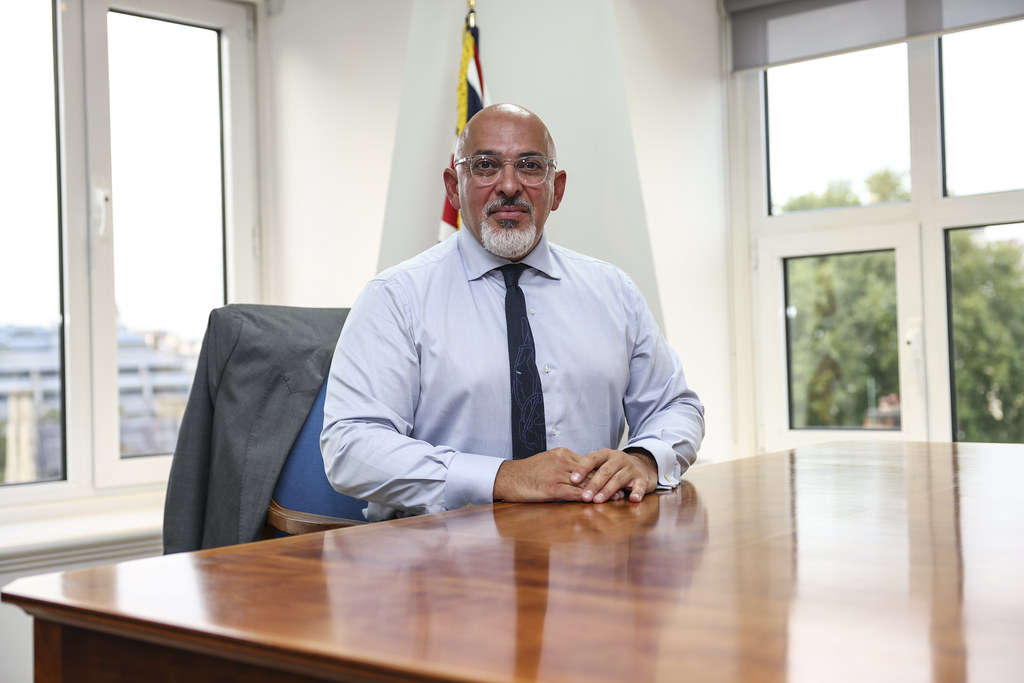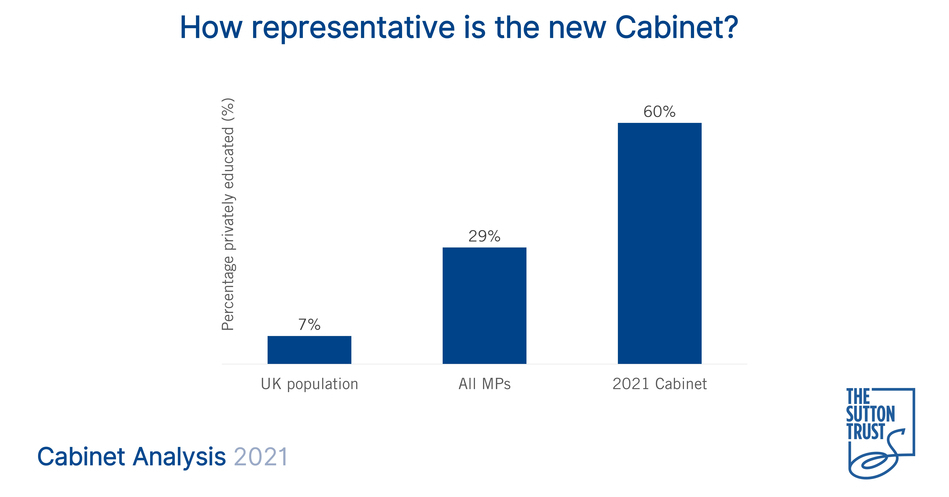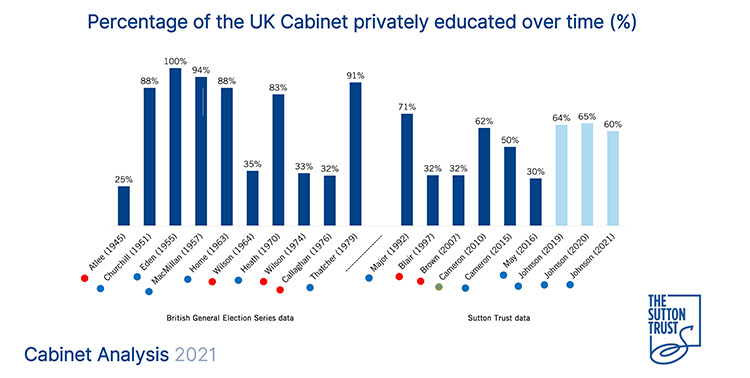Nadhim Zahawi: Education is a crucial part of our levelling up agenda so it’s an honour to be back at the Department for Education as Secretary of State

Nadhim Zahawi has been confirmed as the new Education Secretary in today’s (15 Sept) cabinet reshuffle.
Nadhim will be taking over from Gavin Williamson who has moved in today’s reshuffle. Nadhim is Member of Parliament for Stratford-on-Avon, and was previously Minister for Business & Industry and COVID Vaccine Deployment. He was also appointed as a Parliamentary Under Secretary of State at the Department of Health and Social Care on 28 November 2020.
He was previously Parliamentary Under Secretary of State at the Department for Education from 9 January 2018 to 26 July 2019.
Nadhim was elected as Conservative MP for Stratford-on-Avon in May 2010.
Education Secretary Nadhim Zahawi said:
“Education is a crucial part of our levelling up agenda so it’s an honour to be back at the Department for Education as Secretary of State.
“Children and young people have had a tough time during this pandemic and I’ll be listening to them and their families as we accelerate our work to build back better and fairer.
“From my own experience, I know what a beacon of opportunity this country can be and I want all children, young people and adults to have access to a brilliant education, the right qualifications and opportunities to secure good jobs. That’s both vital for them and also our economy and is more important now than ever before.
“I can’t wait to get started, working with the amazing teachers and staff in our nurseries, schools, colleges and universities as well as employers and businesses.”
Zahawi was privately educated at Ibstock Place School and then at King’s College School, an independent school in Wimbledon, London, followed by University College London, where he studied Chemical Engineering.
Clarifying his ambitions for his new role, in an open letter to education and care professionals, Nadhim has promised:
“With Your Help, We Are Going To Transform The Lives Of The Most Vulnerable And Disadvantaged.”
Sector Reaction to Nadhim Zahawi’s appointment as Education Secretary
 Paul Whiteman, general secretary of school leaders’ union NAHT said:
Paul Whiteman, general secretary of school leaders’ union NAHT said:
“We welcome Nadim Zahawi to the post of Secretary of State for Education.
“Earlier this year, the Prime Minister declared that education was his biggest priority in the wake of the pandemic. The crucial task of translating the government’s rhetoric on education into reality now sits with the new Secretary of State.
“Alongside taking proactive measures to minimise disruption to education this winter, one of the most pressing tasks facing Mr Zahawi will be to ensure that the government now fulfils its promise to deliver a properly funded recovery package so that every pupil in the country receives the support they need and deserve. With the comprehensive spending review only weeks away, there really is no time to waste.
“As always, NAHT stands ready to work with the new Secretary of State and his department to ensure that every child receives the very best education possible.”
Discussing priorities for new Education Secretary and his team, Paul Whiteman, said:
“There is a long list of pressing matters for the new Secretary of State to attend to but none is more important than making sure schools are able to deliver a successful recovery for all pupils, following so many months out of the classroom.
“The Prime Minister’s promise that no child would be left behind due to learning-lost during the pandemic now needs to be delivered. Schools will need a radically more ambitious package of investment from the Treasury in order to get the job done.
“Convincing the Chancellor is the key. And whilst there will be a many different conflicting priorities at the Treasury this autumn, the case must be made that funding educational recovery is an investment in this country’s future, not simply another drain on the nation’s finances.
“The best investment the government can make right now is in the country’s future citizens and workforce. The Education Secretary must quickly turn rhetoric into investment and into action. With the Comprehensive Spending Review scheduled for next month, there is absolutely no time to waste.”
 In response to today’s cabinet reshuffle, Chief Executive of Association of Colleges, David Hughes said:
In response to today’s cabinet reshuffle, Chief Executive of Association of Colleges, David Hughes said:
“As the Secretary of State for Education during the most disrupted time in teaching and learning since the Second World War, it was always going to be a bumpy ride for Gavin Williamson. Despite that, he helped convince the Prime Minister and Chancellor that post-16 education and skills should be a priority. Colleges have a vital role in covid recovery, the new economy, levelling up and business success for the future.
“I have worked before with Nadhim Zahawi on apprenticeships and SEND and I congratulate him on becoming Education Secretary. I’m confident that he will continue the focus and commitment to further education and skills that has had a profound impact on policy-making in FE and begun to reshape the narrative around colleges, and those who study and work in them.
“Nadhim Zahawi knows the college sector well and I absolutely expect that he will pick up the baton and continue to champion colleges and their role in recovering from the pandemic and the levelling up agenda. With the Spending Review imminent, it’s imperative the new Education Secretary appreciates the need for investment in colleges to be able to deliver on the government’s agenda. Beyond that, the ongoing Skills and Post-16 Education Bill will also provide a key opportunity to help colleges deliver even better learning opportunities across the country.”
 Stephen Evans, Chief Executive of Learning and Work said:
Stephen Evans, Chief Executive of Learning and Work said:
“Congratulations to Nadhim Zahawi on being appointed Education Secretary. With a long list of issues and a spending review just a few weeks away, he’ll need to hit the ground running. I hope that he’ll work closely with the DWP and other Departments to implement an Opportunity Guarantee so all young people are offered a job, training place or apprenticeship.
“I hope too that he’ll be focused on promoting lifelong learning, after the catastrophic declines of the last decade. To do that he’ll need to succeed in negotiations with the Treasury, but also think creatively about how we reform the apprenticeship levy, engage adults in learning, support career change, and so much more. I think his commitment to opportunity and apprenticeships is clear from his previous work, he’s in a great job to make a real difference and we wish him well.”
 Association of Employment and Learning Providers chief executive Jane Hickie said
Association of Employment and Learning Providers chief executive Jane Hickie said
“Nadhim Zahawi has a strong reputation for competence and delivery which is just what we need in the DfE when skills are so important to driving the economic recovery. We expect him to be in lockstep with the Chancellor in continuing the progress made under the Plan for Jobs where apprenticeships and traineeships play a vital role.
“In his previous roles as apprenticeship adviser and early years minister, the new Secretary of State demonstrated a clear appreciation of the importance of skills training and he will know that the current post-16 education reforms can only be properly delivered by the DfE using all types of providers to engage with employers and learners across the country in line with the levelling up agenda.”
 Kirstie Donnelly, Chief Executive of City & Guilds group said:
Kirstie Donnelly, Chief Executive of City & Guilds group said:
“We welcome the appointment of Nadhim Zahawi as education secretary as it’s refreshing to have a Secretary of State who has got previous pedigree on skills and apprenticeships and we look forward to him bringing this experience into the role.
“We hope to see the consultative approach that Zahawi is known for shine through as he works with all of us across the sector to successfully implement the skills bill and put the best interests of the learners first.”
 David Gallagher, Chief Executive of NCFE said:
David Gallagher, Chief Executive of NCFE said:
“I’d like to congratulate Nadhim Zahawi on his new position. This appointment brings fresh opportunities and with his background as children’s minister and apprenticeship advisor, I know that he will have an acute understanding of the importance and impact of education, skills and lifelong learning on individuals, communities and the economy. To empower a fairer society and ensure no learner is left behind, we need to ensure young people and adults from all walks of life have the opportunity to reach their full potential and we need to facilitate these journeys – empowering people to make informed decisions about their futures.”
The Black FE Leadership Group (BFELG) Welcomes the appointment of Nadim Zahawi as Education Secretary:
“The BFELG welcomes the appointment of Nadhim Zahawi as Education. Mr Zahawi’s appointment comes at a crucial time for all phases of education which have a pivotal role to play in the levelling up agenda – none more so than the FE sector.
“It’s clearly critical for the post-pandemic recovery that the country is able and willing to maximise the entire talent pool at its disposal – both in terms of young people and adults in skills, education and training, as well as a workforce that is representative of the rich ethnic diversity of the country. To do so it will be necessary to address the attainment disparities that currently blight the careers and prospects of a significant proportion of the population, and to that end the BFELG will seek to work with the Secretary of State, the DfE and other stakeholders to ensure the future prosperity and social cohesion of the whole country.”
 Dr Mary Bousted, Joint General Secretary of the National Education Union, said:
Dr Mary Bousted, Joint General Secretary of the National Education Union, said:
“The NEU congratulates the new Secretary of State for Education on being appointed to the most important position in the Cabinet. We hope that Nadhim Zahawi shows a passion and an interest in education and realises the power that valued education professionals have to transform the lives of young people.
“The Comprehensive Spending Review is in a matter of weeks. The new Secretary of State must be a strong advocate in Government for schools and colleges to be given the resources and funding they need to support education recovery for all children and young people. There can be no more important priority for the future of our nation. The money promised to schools to date is a small fraction of the amount judged to be needed by the Government’s former education recovery tsar. This must be rectified in the Spending Review if we are to make sure that no child is left behind after the pandemic.”
 Commenting on the appointment of Nadhim Zahawi, Liberal Democrat Education spokesperson Daisy Cooper MP said:
Commenting on the appointment of Nadhim Zahawi, Liberal Democrat Education spokesperson Daisy Cooper MP said:
“Gavin Williamson was the most incompetent Education Secretary in living memory, but with children having missed millions of school days, their futures hang in the balance.
“This reshuffle won’t stop the rot to our education system caused by years of Conservative incompetence and neglect.
“Nadhim Zahawi has already shown he is completely out of touch with families after misleadingly claiming that parents would prefer to pay for free school meals. The new Minister could do with meeting Marcus Rashford to understand the harsh reality facing the most disadvantaged children.”
NASBTT Executive Director Emma Hollis welcomes the appointment of Mr Zahawi:
“It potentially represents a new chapter for the Department for Education and brings an opportunity to address the most pressing challenges facing the schools’ sector,” she explained. “It is clear that supporting schools and children through a properly funded post-Covid recovery strategy should be top of the list.”
“From the perspective of ITT, we do, course, face a number of uncertainties over the coming months as a result of the ITT Market Review and we are aware that many voices share our concerns over the future of our sector,”
Hollis continued. “Mr Zahawi will need to decide quickly whether fundamental change in the ITT sector, and the likely immediate impact on teacher supply, is really a priority at this time. We also call for transparency of reporting of the ITT Market Review consultation responses: it is imperative that the Minister responds to what the sector has said. We are here to support Mr Zahawi, however we can, in that decision-making process. We would welcome the opportunity to continue working closely with the Department to ensure continued excellence in ITT provision; once confirmed, the same applies to the new Minister of State for Schools.”
Mark Dawe, CEO at The Skills Network comments on what the Further Education sector needs to see from the new Education Secretary, Nadhim Zahawi following his appointment this week.
“It’s always good to get a refresh in the industry during times of change, so I welcome Nadhim Zahawi and congratulate him on his new position. I know he’s passionate about apprenticeships, ensuring the government supports businesses in getting staff with the right skills and helping upskilling existing employees as part of his levelling up agenda, so I’m keen to see how he implements these passions, which are vital to the industry and development of the UK workforce.
“In particular, I believe there are three key asks that the industry needs to see from Zahawi and this government reshuffle:
- Drive forwards the apprentice agenda – The apprenticeships agenda certainly could do with some tweaks here and there to allow it to evolve in an ever-changing market but changing too much will cause a destabilisation and ultimately, more negative than positive. People are starting to understand apprenticeships as a valuable alternative to the traditional academic route, if not better for many, so it’s vital we continue down that path and not do anything that de-roads that progress.
- Boosting adult skills – We need more support behind boosting skills amongst adults and supporting the idea of providing people with the knowledge to level up and advance their careers. The current funding is nowhere near what’s required to make a difference.
- Increase skills funding – It’s essential the government changes its approach from funding organisations to deliver and instead, put the power in the hands of the learner and employer through the creation of skills accounts for every adult. Most of the population needs skills to make their first step into an industry, shift to sustainable jobs or progress in their careers. This approach will help prevent underspends and ineffective procurement processes and support provision that genuinely adds value to the economy.
“Over the last 18 months, the way we work and learn has dramatically changed, so introducing a fresh pair of eyes and a new passion to the industry is essential. Navigating through Covid-19 was a task no one was prepared for, but now that we are starting to step out into a new normal, we should welcome the new beginning for the industry and start to think about how we can take the learnings of the last 18-months to help shape a better workforce. I’m looking forward to seeing if Zahawi is up to the challenge.”
The education background of Boris Johnson’s new cabinet
The Sutton Trust has analysed the education background of Boris Johnson’s new cabinet. It finds that:
- 60% attended independent schools, a small decrease from Johnson’s previous cabinet (65%). This compares to 29% of MPs in the House of Commons.
- There has been a slight increase in the proportion educated at comprehensives, from 27% in 2020, to 33% today.
- Of the 30 ministers attending Boris Johnson’s new cabinet, almost half (46%) went to Oxford or Cambridge universities. This compares with 27% of all Conservative MPs, 18% of Labour MPs and 24% of all MPs.
- Just over a quarter of cabinet ministers attended both independent schools and Oxbridge.
How representative is the educational background of the new cabinet?
60% of the new Cabinet post reshuffle attended a private school, compared to ~7% of the UK population. Boris Johnson’s new Cabinet are over 8x more likely to have attended private school than the population overall, with 27% attending both an independent school and Oxbridge.
While 60% of the new Cabinet attended an independent school, only 29% of all MPs did the same.

The educational backgrounds of the cabinet over time:













Responses